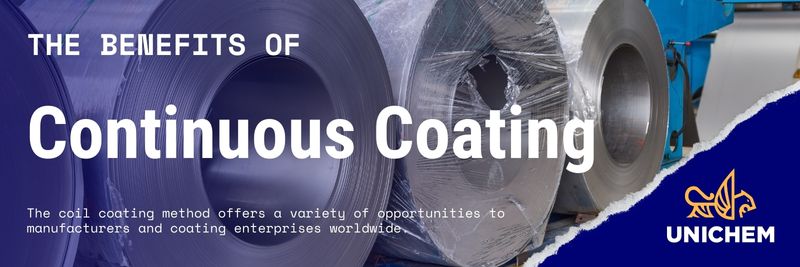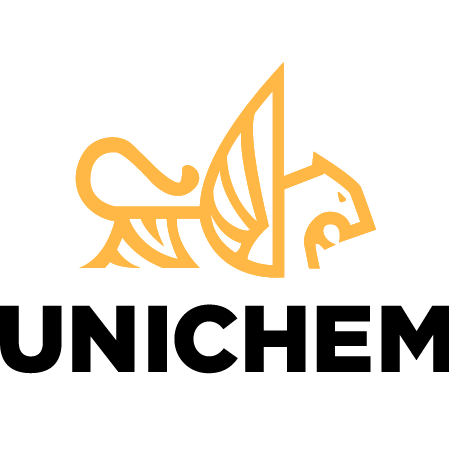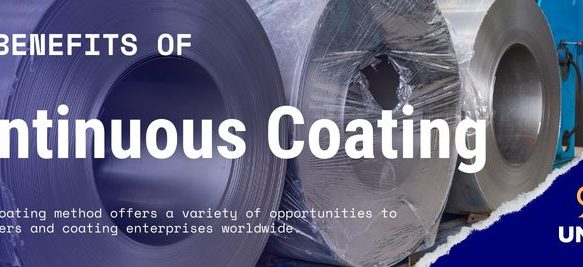
Coil coating is a method of applying paints or coatings that has been utilized for many years, allowing businesses to create durable and appealing products. In accordance with its slogan, “Finish first, fabricate later,” coil coating enables producers to apply a complete coating of paints or adhesives to large metal sheets while they are still in sheet form. Products are then formed from the pretreated or prepainted metal, which provides many benefits for the manufacturer and the end user.
In the mid to late 1930s, Joseph Hunter, who founded Hunter Engineering, established the first coil coating line to apply paint to Venetian blinds in a single pass. Hunter Engineering subsequently designed and constructed more coil coating lines, although the company was purchased by an Italian engineering firm credited with constructing coating lines around the globe.
Today, the coil coating method offers a variety of opportunities to manufacturers and coating enterprises worldwide. Coil coating is similar to the enormous printing presses that run continuously to generate the nightly newspaper. The process is continual and at a constant speed, with coils of metal continually spliced together to create an infinitely long moving web.
Steps in the Coil Coating Process
The steps for coil coating include processes detailed in the European standard EN-10169:2012-06, which also includes performance requirements. Coil coating is a continuous method of applying a coating material to a rolled metal sheet substrate, with steps including:
• Unwinding and, if necessary, cleaning the coil
• Pretreating the metal surface, typically with chemicals, to one or both sides
• Application of single or multiple liquid paints, coatings, adhesives, or powders that are then cured or laminated with plastic sheets
• Cooling and rewinding the coil prior to shipping to a fabricator, sheeter, or slitter
All coil coating applications, whether the most basic or the most advanced, share a number of processes or phases. A fundamental aspect of coil coating on metal substrates is that the metal moves continuously through all of the process phases without ever pausing or changing pace. As a result, coil coating provides a consistent level of quality with uniform application.
Many Benefits of Continuous Coil Coating
Coil coating provides many benefits with high automation that can promote reductions in labor and benefits to the environment as manufacturers do not have to apply coatings prior to fabrication, so there is no need to purchase, store or dispose of hazardous chemicals or coatings. Coil coating provides energy savings with a highly automated process and produces products that are more uniformly treated than if coated individually.
Coil coating allows for a coated surface to come in a variety of surface textures, hues, and sheen levels. The choice of coating relies on the final application of the finished product and may include coatings with adhesives or non-adhesive qualities, high flexibility, or chemical resistance.
Entry to Exit of Substrates in Coil Coating Line
A typical organic coil coating line includes decoilers, an entry strip accumulator, cleaning, chemical pretreatment, the application of a primer coat, curing, the application of the final coat, curing, an exit strip accumulator, and recoilers.
Coil-coating lines come in a variety of sizes, with rated outputs ranging from 3,000 tons to 200,000 tons per year of coated metal, maximum widths of 150mm to more than 2500mm, and speeds ranging from 20 meters per minute to 200 meters per minute.
Working with an experienced custom coating and adhesive provider familiar with the coil coating method is important to achieve maximum benefits with quality and efficiency.
UNICHEM Offers Custom Coatings and Adhesives for Coil Coating Applications
At UNICHEM, we are familiar with the numerous industry markets in which coil-coated laminates and metal sheets are applied, as well as the numerous standards that each coating and adhesive must meet. We tailor the formulas of adhesives and coatings to match industry requirements while enhancing product quality and process efficiency.
UNICHEM is a market-leading provider of industrial coatings technology, with over 50 years of expertise and a high-tech staff of engineers and resin specialists. We provide uniBOND industrial adhesives for long-lasting, dependable lamination bonding in addition to custom-formulated coatings to fulfill the needs of various industry applications. Contact us to learn more about our custom adhesives and coatings for coil coating.


